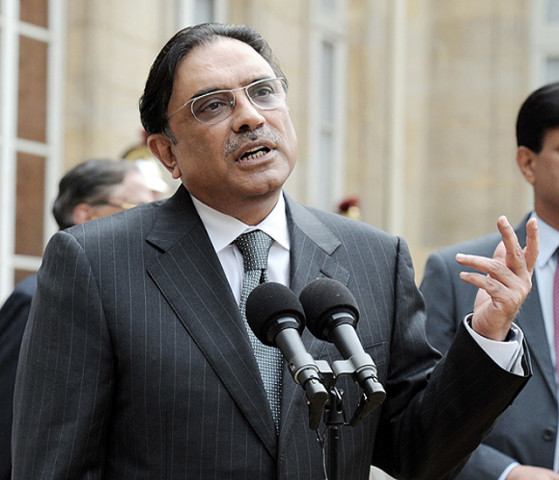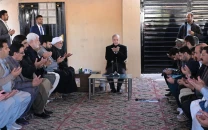President calls meeting of energy stakeholders
Meeting taking place at the time when power shortfall has crossed 6,000 megawatts.

As power shortfall in the country crossed 6,000 megawatts with the energy-intensive summer still around the corner, President Asif Zardari has summoned all energy sector stakeholders for an emergency brainstorming session on Monday to decide how to manage the situation.
Officials at the president’s office and in the power distribution companies confirmed on Sunday that the meeting would take place though they were unsure about the possible decisions likely to be taken.
“At the moment, the whole power sector looks to be in an utter chaos… nobody seems sure how to improve it. The only certain thing is that this summer is going to be the worst,” said one official familiar with the matter.
The meeting is taking place at the time when the gap between the electricity generation and demand has surged to 6,000 MWs, a level which had never been reached during the past three years that the crisis has been most acute.
The long painful hours of power cuts are frustrating household consumers and damaging an already suffering economy. The government fears the situation may trigger political unrest if no corrective measures are taken now.
“This is the backdrop for the meeting. It is do or die, now or never for the government… if it lets things happen the way they are (happening), it is going to cost it very highly,” said another official who is close to President Zardari.
Senior officials from the Pakistan Electric Power Company (Pepco), independent power producers, the Water and Power Development Authority (Wapda), Pakistan State Oil (PSO) and power distribution companies are likely to attend the meeting.
Also present would be Water and Power Minister Syed Naveed Qamar and senior officials from the petroleum ministry.
The shortfall is largely attributed to the government’s inability to pay what is known as circular debt in the power sector that has reportedly jumped to Rs400 billion, though there is no certain mechanism for its accounting.
“That is the biggest evil. It is a very simple mathematics. We have close to 19,000 MWs installed generation capacity and producing less than 10,000. It is because IPPs don’t get money to buy fuel. We will have to resolve the circular debt,” the official added.
It was because of the spiralling circular debt that the state-run PSO stopped supplying fuel to generation companies recently.
There were, however, little hopes that any significant decision could be taken at the meeting because the government was already facing a financial crunch and the international fuel prices were climbing up like never in the past due to political unrest in oil-producing nations in the Gulf, according to officials.
“We must not expect much from the meeting… the limitations are so severe. Only thing we all should get ready for is a tough summer,” another official remarked.
Published in The Express Tribune, April 25th, 2011.



















COMMENTS
Comments are moderated and generally will be posted if they are on-topic and not abusive.
For more information, please see our Comments FAQ